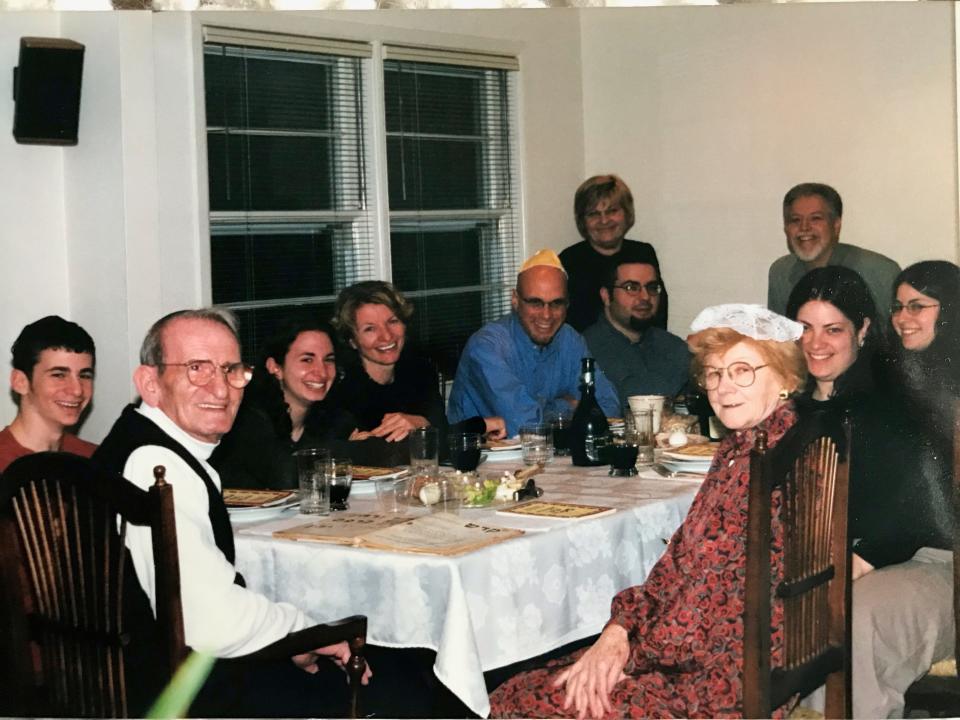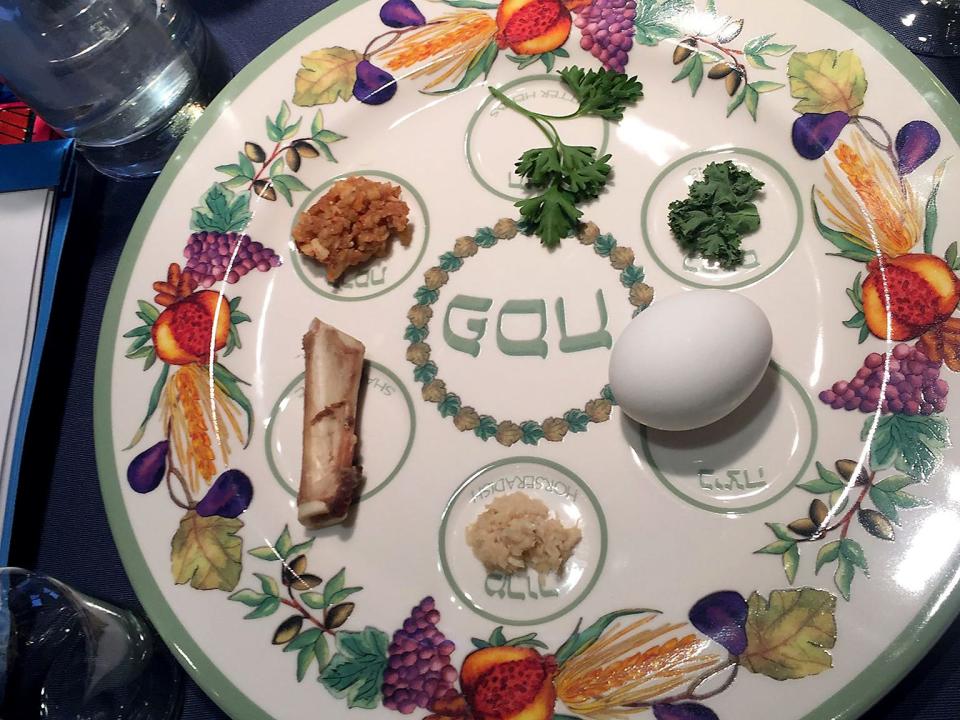Laughter, drinking, singing and food: I miss my parents' Seder
I can still remember the first time my husband, then my boyfriend, attended my parents' Passover Seder.
It was nothing like his parents' Passover Seder. I know. I attended their ceremonial dinner as well. (Jews everywhere but Israel have Seders on two consecutive nights, which conveniently allows both sides of the family their celebration.)
The gefilte fish did not come out of a jar; my mother made ours by hand. The prayers were not said in English; my family read them in Hebrew. The Haggadah (the Jewish prayer book that recounts the Passover story) was not a few sheets of photocopied paper; every guest had the real thing. And the multi-course meal did not conclude the evening; it was (gulp) only the half-way point.
My husband, a secular Jew, loved it. His parents, who joined us a few times, loved it too.
Me? I'm ashamed to say that I took the holiday celebration for granted. My parents — native Yiddish speakers and Holocaust survivors — hosted year after year. My father, a yarmulke on his head, sat at the head of the table. My mother, an apron around her waist, sat beside him. And the family — my sister, her husband, our uncle, our cousins, my husband and all our children, all dressed up, all gathered around the table, boisterous and, yes, eventually, the adults, a bit tipsy.
My parents are gone now, My father died nine years ago at near-age 89; my mother four years ago at 92. And I miss them, of course, and now, with Passover just days away — the eight-day holiday begins on the evening of April 15 — I realize how much I miss their Seder.
Can this Jersey guy save the Seder?: Teaneck author has Seinfeld, Shakespeare on the case
When you eat Manischewitz matzoh?: Think of me; I live in their apartment
About the nones series: Why I'm fascinated by the Nones
Yes, their Seder was too long — five hours and counting. And, yes, the food came too late; I was always starving. And the wine? Yikes, call it sweet syrup; ever had Manischewitz kosher wine? 'Nuf said.
But, oh what fun we had celebrating our forebears' exodus, as the story goes, from slavery in Egypt. Hours upon hours of singing, laughing, haggling, drinking and eating lots and lots of delicious homemade food. Made-from-scratch matzoh balls as light as the chicken broth they bobbed in; gefilte fish as divine as a fluffy French quenelle; hand-chopped fruit-and-nut charoset as delicious as pecan pie; stuffed veal as tender as a baby's smile; tzimmes as sweet as honey, and sponge cake (made with matzoh meal, naturally) as airy as air itself.

And there was not one crumb of leavened food, bread, pasta, cookies, cakes, which are prohibited during the holiday, on the table — or in the house. The reason? Moses and his fellow Jews didn't have time to let their bread rise while fleeing Egypt, the story goes.
My mom spent the days before the holiday cleaning every inch of the house to get rid of any speck of breadstuff. She'd line her kitchen counters and kitchen cabinets with aluminum foil just in case. Even her toothpaste and lipstick would be certified with a "Kosher for Passover" seal. And every year she'd schlep from the basement for the holiday an alternate set of floral, gold-rimmed dishes, heavy crystal glasses and fancy utensils — tableware innocent of any contact with anything leavened.
Like trees, flowers and people in spring, most everything, it seemed, would come out of hibernation, including the special oversized Seder plate that for two nights a year would hold the holiday's symbolic foods -- horseradish, hard-boiled eggs, onion slices, charoset and shank bone; foods, with the exception of the shankbone, that are eaten at specific times during the festivities.
The kids would drink grape juice; we grown-ups Manischewitz. Not because anyone liked it, but because it was a Seder tradition. And tradition is what holidays and family gatherings are about. Tradition — old-fashioned, corny, even silly — helps remind us that our people have a long past to which, even with our modern dress and modern ideas, we belong.
And I grew to love our traditional Seder.
We'd howl with laughter as one or the other of us turned bright red biting into a slice of pungent horseradish. We'd wonder, yet again, why we don't make sweet, crunchy, delicious charoset at other times of the year. We'd happily dip our eggs in salt water and know that dinner, finally, would follow.

We'd stuff ourselves silly, and though drowsy and a bit (a lot?) inebriated, we'd nevertheless have to go on, with the second half of the Seder. But...inevitably (wink, wink) there'd be the same problem, year after year: the afikomen, a half piece of matzoh, necessary for the continuation of the festivities, would go MIA. Our kids, feeling daring and mischievous (after being carefully prompted), had hid it from my father. That's when the haggling began. My dad bargained with them to get it back. Their toy inventories or, as they aged, their bank accounts, grew as a result.
Stuffed and tired, we'd continue to read the Haggadah after our meal, but, thank goodness, most of what was left were songs.
We sang — horribly in the early years, me especially. But who cares? We're family. We can laugh at each other, tease one another, argue jointly because we know we are loved. The singing began to approach the quality of the food once my sisters' kids were old enough to take the lead.
I can't really remember the last Seder in my parents' apartment. For a few years, my sister and her Israeli-born husband hosted it. After my brother-in-law died, she and her kids did the honors. This year, her youngest daughter will be hosting it.
It won't be the same as at my parents'. For starters, the meal will be vegetarian. The event will begin early in the afternoon in deference to young kids' sleep schedules. And everyone, will take a rapid COVID test beforehand.
Yes, things change, but still we will laugh and drink and eat and honor our tradition.
Esther Davidowitz is the food editor for NorthJersey.com. For more on where to dine and drink, please subscribe today and sign up for our North Jersey Eats newsletter.
Email: davidowitz@northjersey.com
Twitter: @estherdavido
This article originally appeared on NorthJersey.com: Passover Seder: Laughter, drinking, singing and food

